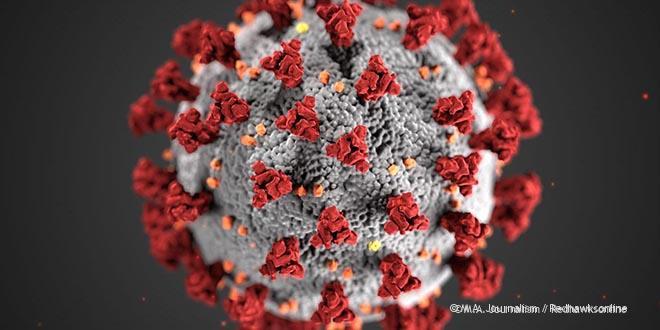Post coronavirus symptoms prove to be long lasting
Fever? Chills? Are you struggling to breathe? The symptoms of COVID-19 resonate in our heads like a catchy pop song. Before entering restaurants, schools or businesses, we fill out screenings documenting our health. Taking temperatures, while once a seasonal endeavor, has become a part of our daily routines. Luckily, along with the virus and the precautions that accompany it, COVID-19 symptoms will also pass. Right?
Wrong. In reality, approximately one in every ten COVID-19 patients continue to experience symptoms for at least a year after first becoming infected with the virus.
Alexis Crumbley, a formerly fit mother of two teenage girls from Austin, Texas, was not one of the lucky ones.
“They say I have the heart of a 92-year-old woman,” said 44-year- old Crumbley, who developed allergy-like symptoms last March and tested positive for COVID-19 soon after. It has been over a year since her initial diagnosis, and her health has still not returned to normal.
“I had a fever for twenty-seven days over 101 degrees Fahrenheit…I think six weeks [after my COVID diagnosis] I was still sick, ” said Crumbley.
“I had pneumonia in both lungs, and I needed antibiotics,” Crumbly detailed. After her first treatment, she reports she felt hopeful, but it was at that point that the spiral of sickness really began.
“I felt a little bit better and then I got worse again. At six months, I went to the cardiologist. They said I had pericarditis, which is an inflammation issue with your heart,” explained Crumbley. “Now…the way I would describe it to you is I’m very, very out of shape. I take a bunch of medicine…I try to walk every day and I try to do some yoga. That’s about it. I have food allergies and all sorts of things now,” said Crumbley, adding after a pause, “I’m very tired.”
While Crumbley has tried tocome to terms with a new way of life, her journey was and continues to be extraordinarily difficult.
Crumbley is not alone. In fact, an estimated 30 million Americans, referred to as “long haulers,” have COVID-19 symptoms that persist for weeks or even months after their initial COVID-19 diagnosis. In some cases, symptoms eventually fade away, but, more often than not, long haulers are left with permanent lung and heart damage. A rising number of neurological issues have also been reported.
“A lot of COVID people… just feel things in their heads or they feel their arms and legs tingling….they get told they’re crazy,” reported Crumbley.
As the pandemic continues to drag on, new information is coming to light.
“There certainly are people who have long-term effects from COVID…usually a virus will run its course over about two weeks but with COVID there are all different types of recovery,” explained Greg Siwek, an infectious disease doctor at Regions Hospital in St. Paul.
“By far, the most common [long lasting effect ofCOVID] is fatigue,” Siwek said. “People just feel tired for a long time. They don’t have their energy back.”
A patient’s brain may be affected, too.
“We hear a lot about people whojust don’t feel like their memory andtheir concentration is as good as itused to be,” said Siwek. “That’s a kind of tough one to measure.”
By now, more is known about the severity of long-lasting COVID-19 symptoms, and who might be most at risk.
“In general, the older you are, and the more health problems you have, the more likely you are to become a long-hauler,” details Siwek.
Despite increased knowledge within the medical community, many COVID-19 long haulers have to fight to feel heard. Crumbley touches on some ofthe struggles long-haulers have faced and continue to face when seeking help.
“In the beginning, the news said COVID was two weeks and you gotbetter or you went to the hospitaland got on a ventilator, and there was nothing in between,” Crumbly recalls. “But there were so many of us who were not better…doctors didn’t know about us.”
Long haulers are not limited to middle-aged women, or even to adults in general. Any of us could be the one in ten.
Lucy Callen, a fifteen-year-old from Nashville, Tennessee, developed Post-Acute Covid Inflammatory Syndrom. Her symptoms lasted for around eighty days and included a daily low-grade fever, headache, extreme fatigue, brainfog and shortness of breath.
“Lucy missed nearly three months of school. On day 82, she said she felt energized for the first time in a long time. Over the last month, we have seen slow, but steady improvement in her stamina,” said Lucy’s mom, Miller Callen.
As students and as human beings living in the midst of a global pandemic it’s important to find balance.
“You just need to make good decisions,” said Crumbley. “I truly don’t think you can live in your house for the next year, but I do think that if you’re at school, you make the decision to keep youand your family healthy. That’s the best you can do right now.”

